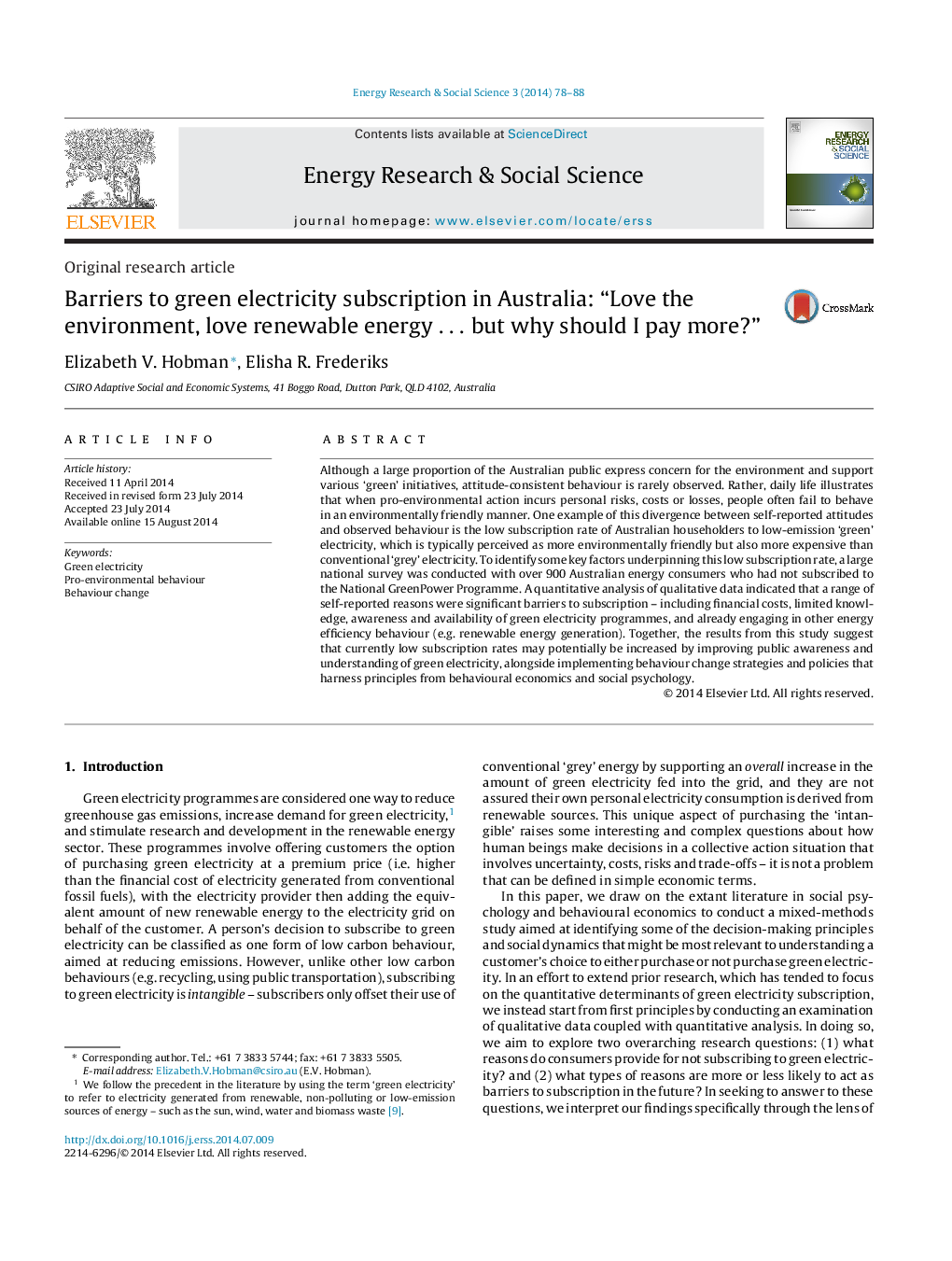| Article ID | Journal | Published Year | Pages | File Type |
|---|---|---|---|---|
| 108177 | Energy Research & Social Science | 2014 | 11 Pages |
Although a large proportion of the Australian public express concern for the environment and support various ‘green’ initiatives, attitude-consistent behaviour is rarely observed. Rather, daily life illustrates that when pro-environmental action incurs personal risks, costs or losses, people often fail to behave in an environmentally friendly manner. One example of this divergence between self-reported attitudes and observed behaviour is the low subscription rate of Australian householders to low-emission ‘green’ electricity, which is typically perceived as more environmentally friendly but also more expensive than conventional ‘grey’ electricity. To identify some key factors underpinning this low subscription rate, a large national survey was conducted with over 900 Australian energy consumers who had not subscribed to the National GreenPower Programme. A quantitative analysis of qualitative data indicated that a range of self-reported reasons were significant barriers to subscription – including financial costs, limited knowledge, awareness and availability of green electricity programmes, and already engaging in other energy efficiency behaviour (e.g. renewable energy generation). Together, the results from this study suggest that currently low subscription rates may potentially be increased by improving public awareness and understanding of green electricity, alongside implementing behaviour change strategies and policies that harness principles from behavioural economics and social psychology.
